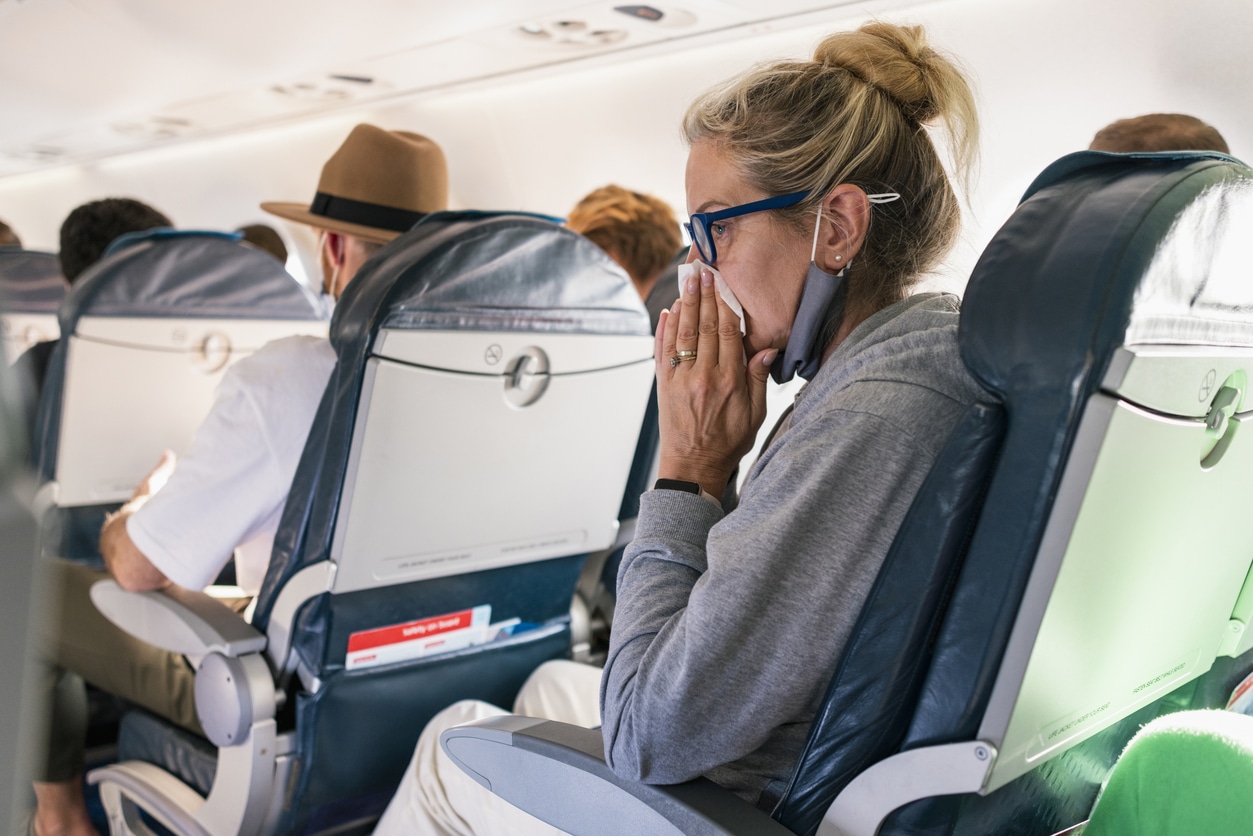For the 100 million people in the U.S. who suffer from allergies, traveling can be a double-edged sword. While exploring new places is exciting, it can sometimes bring a familiar, unwelcome companion—exacerbated allergy symptoms. But why do allergies seem to flare up when you hit the road? Here’s a look at the reasons and some tips for keeping your symptoms at bay while traveling.
Why Allergies Intensify on the Road

- Climate differences: Traveling from one climate to another can expose you to different levels of humidity and temperatures, both of which can affect allergy symptoms. For instance, a dry environment can irritate nasal passages, increasing discomfort.
- New allergens: Each new location comes with its own set of allergens. A change in scenery often means a change in pollen types, levels of mold spores, dust mites and exposure to different kinds of animal dander. Your immune system, unaccustomed to these new triggers, may react more strongly.
- Confined spaces: Traveling on a plane puts you in close contact with other people and their belongings, which may carry pet dander, pollen and other allergens. The recirculated air in airplanes can also contain these allergens, which means you’re breathing them in for the duration of the flight.
- Accommodation hazards: Hotels and other accommodations can be hotspots for dust mites, mold and pet dander from previous guests, not to mention potential irritants like cleaning chemicals and tobacco smoke.
- Stress: Travel can be stressful and stress hormones can exacerbate allergy symptoms, making you feel even worse.
Managing Allergies While Traveling
- Know before you go: Check the allergy forecast for your destination and pack any necessary medications.
- Pack smart: Bring your own hypoallergenic pillowcase and consider a portable air purifier for hotel rooms.
- Stay hydrated: Keeping your mucous membranes moist can help ward off nasal irritation.
- Peak times: Avoid going out when pollen levels are at their peak, typically in the early morning and late afternoon.
- Shower off: Rinse away any allergens from your skin and hair after a day of exploring.
Traveling with allergies requires extra preparation and awareness. By understanding the causes of increased symptoms and taking steps to mitigate them, you can make your travel experiences much more enjoyable.
Remember to consult your doctor for personalized advice, especially if your allergies are severe. With the right precautions, you can focus on making memories rather than managing memories. To learn more about your allergies, schedule a consultation with ENT of Georgia North today.